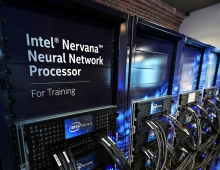
Sony's "Core Libraries" of Deep Learning Tools are now Open source
Sony has made its "Neural Network Libraries" that serve as a framework for creating deep learning programs for artificial intelligence available in open source.
Software engineers and designers will now be able to make use of these core libraries free of charge to develop deep learning programs and incorporate them into their products and services.
Deep learning refers to a form of machine learning that uses neural networks modeled after the human brain. By making the switch to deep learning-based machine learning, the past few years have seen a rapid improvement in image and voice recognition technology, even outperforming humans in certain areas.
The work of neural network design is very important for deep learning program development. Programmers construct the neural network best suited to the task at hand, such as image or voice recognition, and load it into a product or service after optimizing the network's performance through a series of trials. The software contained in Sony's core libraries (operation module group) efficiently facilitates all the above-mentioned development processes, and incorporates necessary elements for deep learning R&D.
The software in Sony's core libraries is written in C++11, a programming language that runs in a variety of environments (OS and hardware, including GPUs) and operates on Linux, Windows, and a multitude of other platforms.
On top of the C++ core libraries, Sony provides a layer of Python interface functions. Python is the prevailing programming language for deep learning development which allows for easy prototyping and high efficiency development.
Sony's core libraries are compatible with Nvidia GPUs. Furthermore, developing and adding new functions as needed on the leading edge of deep learning is simple. For example, it is easy to add optimizer modules as well as function blocks, which are structural elements of neural networks.





















